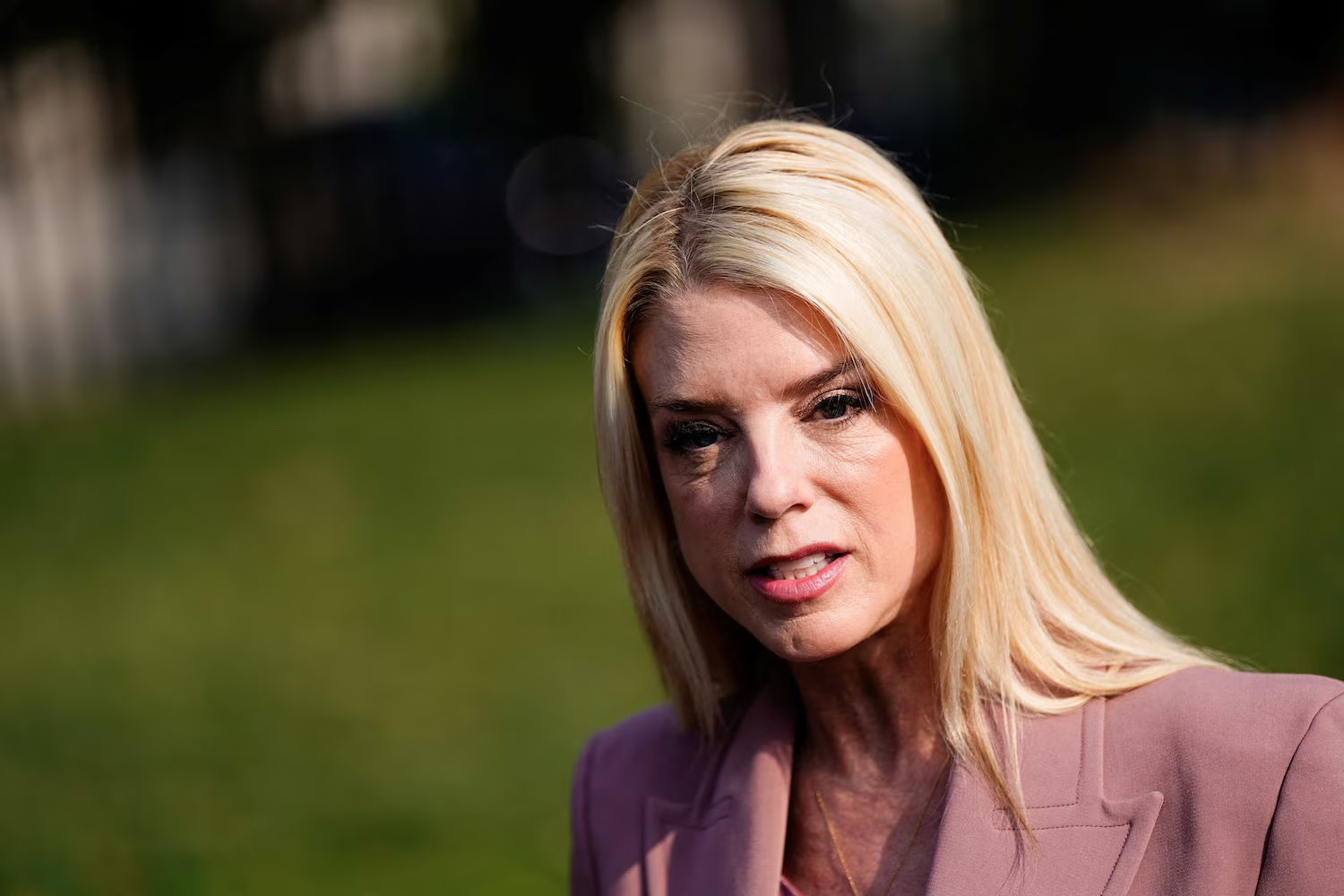Washington, D.C. – Attorney General Pam Bondi on Wednesday defended President Donald Trump’s controversial decision to pardon hundreds of individuals involved in the January 6 Capitol riot, even as federal law enforcement cracked down with military force on protesters in Los Angeles.
Speaking to reporters outside the White House, Bondi dismissed accusations of a double standard in the application of justice, stating:
“These are very different situations. The people in California are currently harming others. It’s happening right now.”
Criticism from California Officials
California Governor Gavin Newsom strongly objected to the federal response, calling it a clear example of “selective enforcement” based on political motivations.
“Trump isn’t against violence—he’s against violence that doesn’t benefit him,” Newsom said Tuesday. “What more proof do we need than what happened on January 6?”
Newsom, alongside Los Angeles Mayor Karen Bass, accused Trump of deploying federal troops to “intimidate rather than protect,” warning that such actions were escalating tensions in an already volatile situation.
Elon Musk Apologizes to Trump After Feud: “They Went Too Far” Following Bitter Public Clash
Bondi’s Justification for Pardons vs. Prosecutions
Bondi argued that pardoning those involved in the Capitol riot was justified because it was a “closed, historical event,” unlike the ongoing unrest in Los Angeles, which she described as a “current and active threat” to public safety.
“Right now in California, people are being hurt. This is continuing,” she said, emphasizing the immediacy of the threat as justification for a robust law enforcement and military response.
Despite her remarks, critics pointed to the stark contrast in legal treatment. Nearly 1,600 individuals linked to the Capitol insurrection received federal pardons, including around 450 accused of assaulting law enforcement. Reports confirm that roughly 300 of those cases ended without formal punishment, and approximately 60 active investigations were also dropped due to the blanket clemency.
In Los Angeles, by contrast, protesters are being prosecuted aggressively, with Bondi confirming nine federal charges including assault, Molotov cocktail use, and attacks on federal agents.
Federal Military Deployment in Los Angeles
Bondi also defended the deployment of 4,100 National Guard troops and 700 U.S. Marines to Los Angeles under President Trump’s directive, framing it as a lawful use of federal power.
She clarified that federal agents were involved in supporting immigration enforcement rather than mass arrests — a legal nuance critics say fails to justify the visible militarization of public space.
“We’re not afraid to act when needed,” Bondi added. “If we need to escalate further, we will.”
But state officials argue that the military presence undermines California’s sovereignty and stokes fears among peaceful demonstrators.
Legal Challenges and Political Fallout
California has already filed a lawsuit against the federal government, seeking to block the troop deployment and reassert control over law enforcement within state borders. The case is now being heard in federal court as tensions rise across major cities.
Democratic Senator Jack Reed condemned the pardons, calling them “a betrayal of constitutional order,” and noted the hypocrisy in punishing protesters for minor offenses while granting immunity to those who stormed Congress.
“Law and order isn’t something you only apply to your political enemies,” Reed said. “Forgiving people who assaulted the Capitol while prosecuting those who spit on police — that sends a very dangerous message.”
Bondi Faces Scrutiny Over Consistency
Bondi, during her confirmation hearings, had vowed to oppose any violence against law enforcement, saying:
“Let me be clear: I condemn violence against law enforcement officers—period.”
Now, critics question whether that stance aligns with her support for mass pardons of individuals who attacked Capitol police officers.
When asked if the administration was considering invoking the Insurrection Act to justify further military escalation, Bondi said there was “no current need” but reiterated the administration “will not hesitate to act” if necessary.
Conclusion: A Question of Equal Justice
The stark contrast between the Trump administration’s response to Jan. 6 and its crackdown on current protests has reignited debate over selective justice and politically motivated enforcement.
While Bondi insists there’s a legal distinction, many Americans — from legal experts to elected officials — remain skeptical. Ultimately, the controversy centers around one key question: When is violence condemned, and when is it forgiven?

